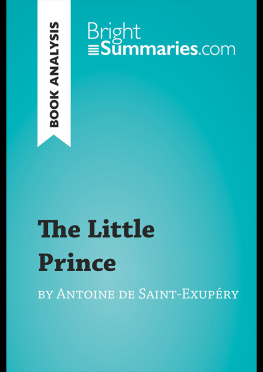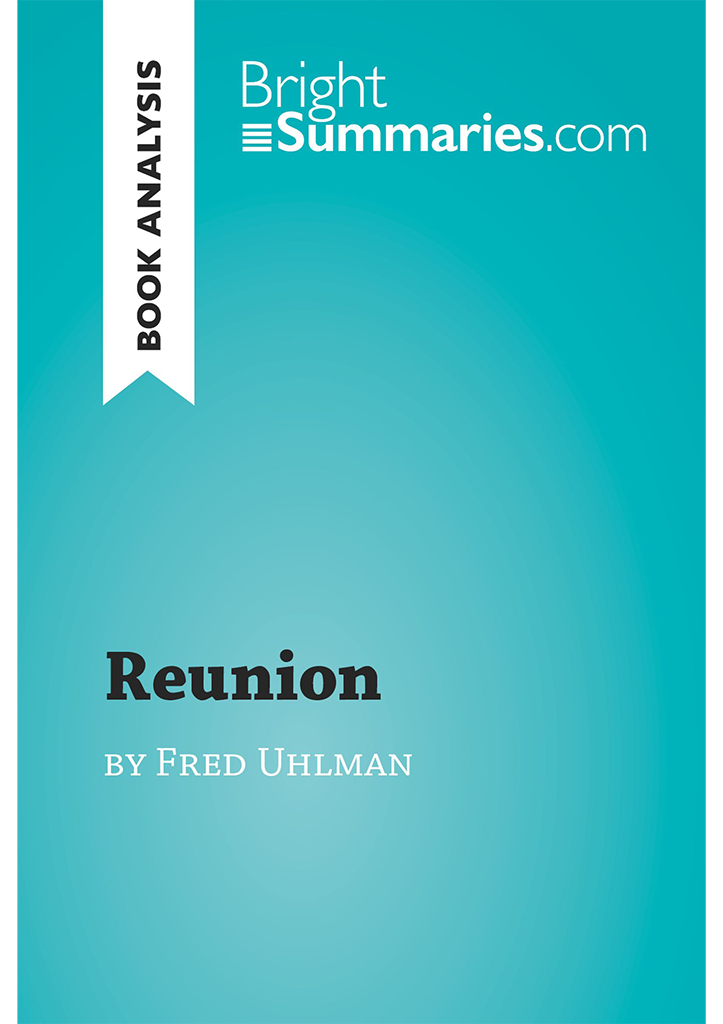Fred Uhlman was born in Germany in 1901, to a non-practicing Jewish family. In his early teens, the First World War broke out and, with it, came the metaphysical crisis of the author. Already disillusioned by religion, he also became disillusioned by his country.
After studying law, Uhlman established himself as a lawyer. But tensions between Nazis and Communists multiplied, anti-Semitism grew and, in 1933, Hitler was elected to power. Uhlman then left Germany for Paris, before finally settling in England. From 1940, he devoted himself fully to his two passions, painting and writing. He published his autobiography The Making of an Englishman in 1960 and his novel Reunion in 1971.
Reunion
The youths of Nazi Germany
- Genre: novel
- Reference edition: Uhlman, F. (1938) LAmi retrouv . Paris: Gallimard.
- First edition: 1971
- Themes: friendship, Nazism, war, exile, separation
Halfway between a short story and a novel, Reunion is a short narrative describing the meeting and passionate friendship between two teenagers in Germany at the end of the 1930s. The narrator, Hans, is of Jewish origin, while Conrad was born into an illustrious family of German aristocrats. Their friendship evolves and deteriorates with the rise of the Nazi regime and the resulting events in the background.
The narrative is not only a testimony of life during this period and the upheavals experienced by Jews at the time. More precisely, it is a true ode to friendship and to the romantic impulses of adolescence. Initially rejected by publishers for a long time, Reunion was published in 1971.
Quotes taken from the reference edition have been translated by BrightSummaries.com.
Summary
Hans Schwarz is a young student from Stuttgart, Germany, living in a pre-war Germany that is still relatively tolerant and peaceful. The young man comes from a Jewish family from the small bourgeoisie and leads a quiet life, like all the young people in his community. He has no real friends because, influenced by German Romantic poetry that he particularly likes, he has yet to find anyone that matches his expectations or who he deems worthy enough to share his secrets and thoughts on the world, religion and the arts.
This is when Conrad von Hohenfels comes into his life, a young aristocrat belonging to one of the most prestigious families in Germany, some members of which have strongly influenced the history of the country. He is elegant and confident, almost regal. The assurance and poise of Conrad are immediately fascinating to young Hans, who is dumbfounded before such prestige. From then on, he does everything he can to make friends with the aristocrat: he studies more to stand out in class, he takes part in perilous exercises in gym class, etc. But, Conrad does not seem impressed by such devotion.
However, one day in late winter, Hans bumps into Conrad on the street and, unexpectedly, Conrad addresses him and shakes his hand: Finally, thought Hans, someone who matches my Romanesque ideal of friendship (p. 21). From that day on, the two teenagers do not leave one anothers side and develop an unbreakable friendship. Long walks and discussing German poets, the existence of God and science become their favorite pastime.
The worrying developments in Germany towards anti-Semitism do not seem to trouble the two young men initially. However, Hans notices the first signs of separation in the character of Conrads mother, who Hans never sees but who, according to his friends descriptions, hates Jews and believes they are demons from hell. Consequently, even if he does not share the same beliefs, Conrad must hide his friendship with Hans. It is from this moment on that Hans begins to suffer from anti-Semitism when, for example, his friend abandons him to take part in the events of the Nazi party, or when classmates are violent and threaten him. Yet, a few years later, Hans learns with astonishment that his friend was involved in a plot against Hitler.
Given the gravity of the situation, when the dictator rises to power, Hans father decides to send him to America, so that he can continue his studies. Hans feels uprooted.
Thirty years after this event, he receives a letter from his former high school, Karl Alexander Gymnasium, requesting funds. Accompanying this letter is a list of names of his former classmates who died during the war. After much hesitation mixed with fear, Hans decides to look for the name of his friend who he lost contact with and discovers with amazement that Conrad was executed following the plot.
Character study
Hans Schwarz
Hans Schwarz is the main character and narrator of the story. A young boy of sixteen at the beginning of the novel, he is a German Jew, the son of a physician and appreciated by all. Educated and passionate about collecting ancient coins and German Romantic literature from the nineteenth century, he is an intelligent and thoughtful boy, who enjoys debating the meaning of life, religion, etc.
Lonely and seeming to sleep in the gloom, it seems that he begins his life, like the story, following the arrival of Conrad in the class; this is also the moment when the story begins. He is finally brought to life by the presence of this noble, mysterious and almost unreal character. Besides, the narrators name is not mentioned until Conrad von Hohenfels name appears entirely, after which it is given for the first time.
Conrad von Hohenfels
Conrad von Hohenfels comes from a line of famous and illustrious German aristocrats who have played an important role in the history of the country. Contrary to the description of the young Hans, the beginning of the story provides a lot of information on the physical appearance of Conrad. Elegant, luxuriously dressed and confident, Conrad is like a Greek god who is respected and desired by all.
Conrad quickly becomes a target for the young Hans who, fascinated by his prestige, does all he can to win his friendship.
Parents
Hans parents are kind, attentive and tolerant people. They are both entirely devoted to their nation. Hans father is a physician who was awarded the Iron Cross for his work during the First World War. Although of Jewish origin, they do not possess true religious convictions. They are very welcoming to Conrad, who spends a lot of time in their home.
Conrads parents are not very present in the story. They only appear on a few occasions. We do, however, know that Conrads father is an aristocratic and haughty ambassador. As for his mother, she is a descendant of a distinguished Polish family, is anti-Semitic and a strong supporter of Hitler. Conrad explains to his friend that she views their friendship in a very negative light: She hates the Jews. She is afraid of them, even though shes never met one []. She thinks that my being seen with you is a stain on the Hohenfels coat of arms. (p. 76). This is why Conrad never introduces Hans and never invites him to his home unless he is alone. As a consequence, Hans doubts about Conrads true feelings towards him continue to grow.




















